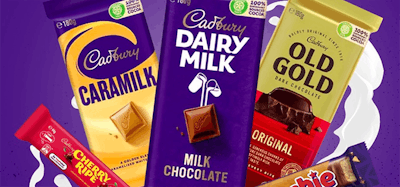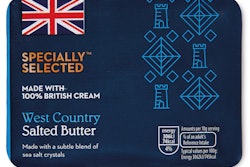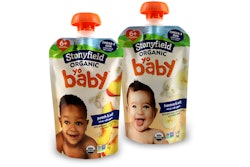
While two of Cadbury’s largest competitors in the Australian confectionery market—namely Mars and Nestlé—have taken the paperization route to meet their sustainable packaging commitments, the Mondelēz brand is pursuing another equally innovative path: the use of chemically recycled plastic. In March 2024, the maker of such iconic brands as Cadbury, Pascall, and The Natural Confectionery Company announced it was collaborating with film converter Amcor and chemical company ExxonMobil to dramatically increase the circular plastic used across the wrappers for its core chocolate portfolio.
Cadbury first introduced biaxially oriented polypropylene PCR into the packaging for its family blocks, or bars, chocolate range in 2022, with 30% mechanically recycled material. However, the limited global supply of food-grade PCR content and an increase in demand for the material, including its own ambitions to expand its use of recycled plastic, drove the company to pursue a new source for rBOPP.
 | Watch this video to learn more about ExxonMobil Exxtend technology |
“Increasing the use of recycled content is a critical factor in the establishment of a true circular economy for sustainable packaging,” says Cadbury. “Reducing our reliance on virgin materials will decrease the pressure we put on the planet’s finite resources and ensure that valuable materials are not lost to landfill.”
Cadbury found that new source of PCR with Amcor, which is converting BOPP using certified-circular content resulting from ExxonMobil’s Exxtend technology. According to ExxonMobil, unlike mechanical recycling, which involves chopping or shredding plastics into smaller pieces and melting it down to form a limited range of new products, Exxtend’s chemical recycling technology, often referred to as pyrolysis, uses heat to transform plastic waste at a molecular level into raw materials used to manufacture new PP and polyethylene. As a result of this process, the subsequent resins are indistinguishable from virgin plastic, but with a lower environmental footprint. According to a cradle-to-gate lifecycle analysis (LCA) from Sphera, for every 1,000 tons of waste plastics processed using Exxtend, 185 to 525 tons (19 to 49%) less CO2 equivalent emissions (CO2e) are produced versus processing the same amount of fossil-based feedstock.
Exxtend is capable of processing a range of hard-to-recycle plastic that mechanical recycling can’t, e.g., multi-material flexible plastics, artificial turf, bubble wrap, and motor oil bottles, with higher levels of contaminants. The company sources its feedstock from partner Cyclyx, which collects and processes plastic waste that is currently destined for landfill.
In Cadbury’s case, it will be using 1,000 metric tons of certified circular BOPP leveraging ExxonMobil’s Exxtend technology to package approximately 500 million family-sized Dairy Milk Chocolate blocks. Given the virgin-like quality of ExxonMobil’s Exxtend PP, the new film enables Cadbury to meet the same consumer expectations for performance, safety, and product appearance as with its previous packaging.
 | Read this related article, “Advanced Recycling Technologies: Transforming Waste into Opportunity” |
The rollout of the new packaging for Cadbury’s chocolate blocks began in late Q1-2024. According to the company, it plans to expand the use of the material to other products, including Crunchie, Twirl, and Cherry Ripe bars. Says ExxonMobil, “Plans for 2024 include scaling up the use of certified circular plastics, with anticipated growth in 2025.” PW
























